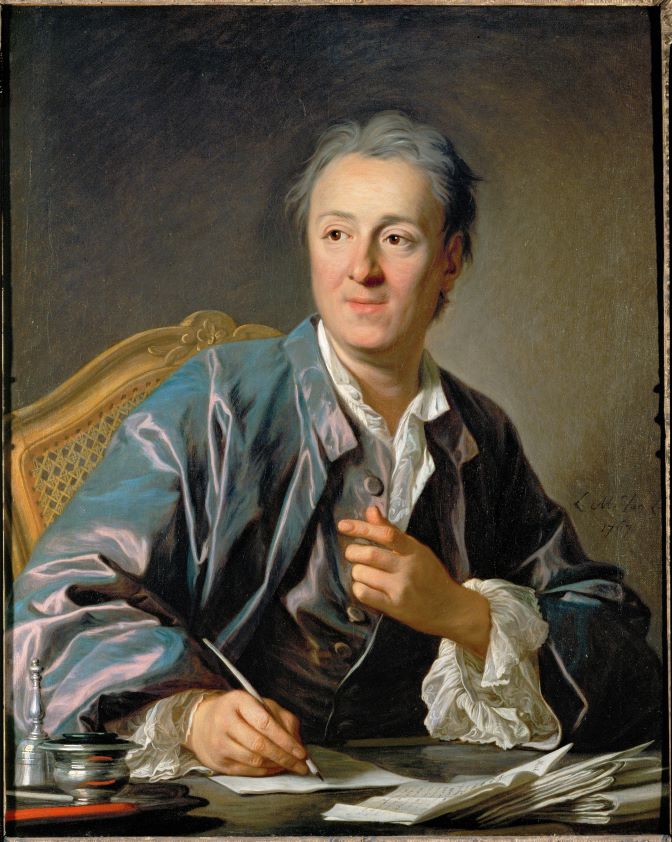Liberty Matters
Sphinx Without a Secret?

Just a couple of points of clarification. As Hank's opening essay made plain, the question we were invited to address was inspired by Jonathan Israel's conception of "Radical Enlightenment," which has dominated the field of Enlightenment studies for more than a decade. None of us is an Israelite. Hank's essay in effect reversed Israel's verdict on the Encyclopédie -- a good case could be made that its political thought, indebted as it was to Montesquieu, was actually conservative rather than "radical." In response, Dan went a step further, suggesting that the very concept of "Radical Enlightenment" is a reductive anachronism, which historians would do well to deep-six altogether. Neither Andrew nor I dissented from these judgments in any fundamental way. We did agree with Hank that a total ban on the adjective "radical" is probably not in the cards. Andrew argued that we could continue to use it in regard to the Encyclopédie sparingly and with care: examples would be those instances in which Jaucourt, chief ventriloquist of Montesquieu, appeared to be throwing the latter's voice in Lockean directions, toward a reformism -- tempering monarchy or abolishing slavery -- that accurately could be termed "radical."
For my part, I made similar arguments about the possibility that anticipations of a specifically French tradition of "social republicanism," pointing backward to Fénelon and forward to Jacobinism, might be found in the Encyclopédie. I also suggested that no discussion of the "radicalism" of the latter could avoid the issue of "esotericism" -- a special focus, of course, of the Straussian tradition. Hank's claim that the political thought of the Encyclopédie was basically Montesquieuean already pointed in that direction. Following Strauss's own lead, followers of his have long argued that Montesquieu was a more radical thinker than is often assumed, with close study of De l'espirt des lois revealing a prudent interweaving of "exoteric" message and "esoteric" teaching. I also cited Arthur Melzer's recent Philosophy between the Lines, which argues that the Encyclopedie was the culmination -- preceded by Machiavelli, Bacon, Descartes, and Spinoza -- of a specifically modern line of "political esotericism," which uses "initial concealment for the sake of future disclosure" in order to try to change the world for the better.
That was too much for Dan, who has wound up his part of the discussion with a pretty forceful "give me a break." His dismissal of the idea that d'Alembert and Diderot were practitioners of the dark art of "political esotericism" puts one in mind of Myles Burnyeat's famous broadside against Strauss, which borrowed its title from Wilde's short story.[98] It may be the case that the Encyclopédie is itself a "sphinx without a secret." The appropriate response to Dan's resolute "nah" would have to come from someone with more knowledge of and sympathy for the Straussian outlook than I possess. All I would want to stress is the difference between the Straussian approach to the Encyclopédie and that of Jonathan Israel, despite superficial similarities. That was the point of my suggesting that Israel's conception of "the Enlightenment" needs just as much critical scrutiny as his claim that its essence is "radical." Once you abandon the binary contrast between radicalism and moderation and confront the genuine pluralism of "enlightened" outlooks, the pretension of the claim that "all Enlightenment by definition is closely linked to revolution" crumbles away. But what if the Scientific Revolution, as, for instance, David Wootton sees it, and the Enlightenment are not the same things after all? More pointedly, what if the latter begins to look like so many different and competing ways of dealing with the truly radical epistemological break represented by the former? That is the kind of question that Israel's own version of "the heavenly city of the eighteenth-century philosophers" forbids, but is permitted or even encouraged by the Straussian approach.
Endnotes
[98.] M. F. Burnyeat, "Sphinx Without a Secret," New York Review of Books, May 30, 1985 -- which provoked a wonderfully funny ruckus in the Letters pages, as one big name after another -- Cropsey, Jaffa, Bloom, etc. -- protested over the caricatures of both Burnyeat and David Levine (who was held to have given Strauss "two right hands").
Copyright and Fair Use Statement
“Liberty Matters” is the copyright of Liberty Fund, Inc. This material is put on line to further the educational goals of Liberty Fund, Inc. These essays and responses may be quoted and otherwise used under “fair use” provisions for educational and academic purposes. To reprint these essays in course booklets requires the prior permission of Liberty Fund, Inc. Please contact oll@libertyfund.org if you have any questions.